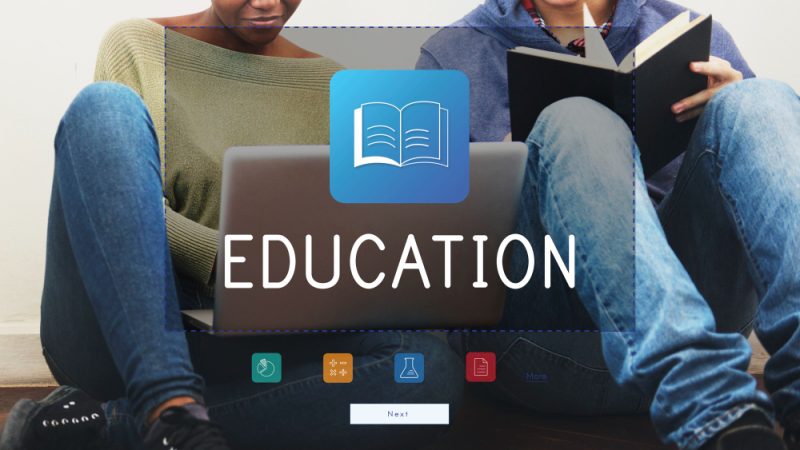The Best Academic Writing Help Resources: A Student Guide

Student life doesn’t happen without academic writing, but let’s be real—it can quickly get out of hand. From essays to research papers, and on to dissertations, it’s not always simple to find out where to start or how to make things shine with a high level of quality. That’s where having the best resources for academic writing assistance comes in handy. From grammar checkers to citation tools, academic databases to professional services, this guide has everything you need to take your writing to the next level.
For 16-to-30-year-olds juggling coursework, part-time work, and social lives, organizing academic tasks can be a game-changer. This article consolidates the best tools, platforms, and methods for tackling all forms of academic writing—particularly if you’re searching for high-quality assignment help.
Why Academic Writing Resources Matter
Regardless of one’s confidence as a writer, academic norms specify a certain tone, format, and citation approach that it may take some time to get hold of. Writing well academically is about more than mere putting-ideas-into-words—it’s about clarity, organization, proof, and detail.
Trusted academic writing sources assist with:
- Getting assignment expectations
- Organizing arguments logically
- Having grammar and punctuation in top shape
- Reference sources properly
- Enhancing clarity and flow
- Saving time in pressured situations
With so many demands placed on students, having access to the right tools is like having a secret academic weapon.
Essential Writing Guides and Style Manuals
University Writing Centres and Online Hubs
Many UK universities offer online writing support through their academic skills centres. These platforms often include free downloadable resources covering everything from essay structure to critical analysis.
Common materials include:
- Essay templates and outlines
- Checklists for editing and proofreading
- Referencing style guides (APA, Harvard, MLA)
- Grammar refreshers
- Academic tone guidelines
If attending a UK university, check the institution’s website for dedicated academic writing support portals.
Online Writing Guides
Some websites specialise in academic writing rules and best practices. These sites explain the dos and don’ts of academic structure, argument building, and paragraph development.
Top topics usually covered:
- How to write an effective thesis statement
- Transitioning between paragraphs
- Avoiding repetition and redundancy
- Integrating sources into your argument
- Balancing personal voice and objectivity
A good guide to writing teaches students to divide large writing assignments into bite-sized pieces.
Grammar and Style Tools
Grammar Checkers
Grammar tools are ideal for catching crafty errors. These websites are more than just spell checkers—they assist with fixing sentence structure, punctuation, tone, and clarity problems.
Check for tools that provide:
- Passive voice suggestions
- Punctuation corrections
- Tone modifications
- Wordiness warnings
- Vocabulary improvements
When striving for top grades, tiny details can make a huge difference. Grammar aids facilitate neater, more professional writing without the need to read the work dozens of times.
Readability Enhancers
Readability aids assist in making writing clear and easy to digest. These tend to mark down overly complicated sentences, uneven flow, or unclear phrasing.
Features that are useful include:
- Flesch-Kincaid readability scores
- Long or difficult-to-read sentence highlighting
- Suggestions for making dense content simpler
Good academic writing is intelligent and readable. Readability checkers strike a balance between the two.
Citation and Referencing Tools
Citations are usually the most irritating aspect of academic writing. Fortunately, citation tools can remove the pressure from it.
Citation Generators
Citation tools are able to generate flawless in-text citations and whole bibliographies in seconds.
Most-used citation styles supported:
- Harvard
- APA
- MLA
- Chicago
- Vancouver
These tools prevent unintentional plagiarism and ensure consistency in your document.
Referencing Tutorials
Some websites provide complete referencing tutorials, detailing how to cite books, journal articles, websites, and more. They are best suited for newbies and helpful for double-checking tricky or less conventional sources.
Accurate referencing is integral to academic honesty, and quality tools instill confidence in doing it correctly.
Academic Databases and Research Sites
Good writing begins with good research. Rather than using arbitrary internet sources, academic databases yield sound, peer-reviewed content.
University Library Access
The vast majority of students have free, unfettered access to academic quality databases through their university library. These could be:
- JSTOR
- ProQuest
- ScienceDirect
- Oxford Academic
- SAGE Journals
Access these through university login interfaces every time to evade paywalls.
Google Scholar and Open Access Repositories
Google Scholar is yet another reliable place to discover academic sources. It’s particularly valuable for:
- Obtaining open-access PDFs
- Scanning citation counts
- Searching for related studies
For even greater free access, use repositories such as CORE or the Directory of Open Access Journals (DOAJ).
Plagiarism Checkers
Plagiarism can greatly damage academic performance, even if it’s accidental. Plagiarism checkers assist in ensuring writing is adequately referenced and paraphrased.
How They Work
These programs scan the paper and match it against:
- Online content
- Published academic papers
- Student paper databases
A good plagiarism checker assists in pointing out areas that require citations or rewriting.
Best Practices for Use
- Use after each draft
- Don’t only check percentage scores—read the highlighted regions
- Paraphrase or quote anything highlighted as a direct match
- Have a clean version for submitting
Plagiarism detection software is also used internally by many universities, so it’s worth double-checking before submitting anything.
Writing Communities and Peer Feedback
Having another pair of eyes on a draft can be priceless. Peer-review websites and writing communities provide feedback and guidance without criticism.
Student Forums
Student-specific forums enable users to pose questions regarding structure, language, referencing, and more.
Popular forum topics include:
- How to begin an introduction
- Clarifying confusing assignment briefs
- Structuring long essays
- Understanding tutor feedback
These websites provide support from those experiencing the same process.
Academic Writing Groups
Writing groups—frequently organized through universities or websites—are venues where students may exchange advice, swap drafts, and offer encouragement.
Advantages are:
- Deadline accountability
- Constructive feedback
- Brainstorming ideas
- Breaking isolation during intensive writing periods
Working with peers builds confidence and enhances general writing quality.
Professional Academic Services
When schedules are short or assignments are difficult, some students seek professional academic writing services. These may provide individualized assignment help, such as editing, proofreading, or model solutions.
Types of Services Provided
- Grammar, spelling, and style proofreading
- Structure and clarity editing
- Document formatting to particular style guides
- Supplying sample answers as reference
- Topic brainstorming help
These services are not intended to be submitted as another’s work under their own name, but they can clarify structure and build academic skills in the long run.
Ethical Use of Services
Always utilize professional services as a teaching aid, never as a shortcut. Their function is to aid in understanding, not substitute for student effort.
Tools for Time Management and Planning
Writing well also involves good time management. Time-tracking tools enable students to stay organized and avoid last-minute rushes.
Planning Tools
- To-do list applications
- Calendar reminders of deadlines
- Pomodoro timers for intense study sessions
- Task management platforms such as Trello or Notion
Dividing big writing projects into small pieces can make everything seem less overwhelming—and decrease stress levels too.
Revision and Editing Checklists
After having a draft finished, it’s time to look back and revise. Even skilled writers must revise their work so that it’s clearer, briefer, and more coherent.
Key Areas to Check
- Does every paragraph have a well-defined point?
- Are transitions from one section to another smooth?
- Is the tone objective and formal?
- Are all sources correctly referenced?
- Is the conclusion reflective and strong?
An editing checklist guarantees no step is forgotten prior to submission.
Final Thoughts – Building Strong Writing Habits
Academic writing does not have to be intimidating. With the right tools and methods, students can develop a system that suits them and get better with time. From grammar checkers to peer help, citation tools to databases, having access to a varied toolkit is what matters.
For others requiring a bit of extra assistance or fighting close deadlines, off-campus assignment help may provide organized guidance. Sites that provide editing and tutoring assistance are able to deal with particular writing issues without lowering academic standards.
Assignment in Need(assignnmentinneed.com) is one available choice—a respectable option for those requiring assistance in refining their own academic writing. They offer organized assistance that defines expectations and refines writing to a higher quality.






